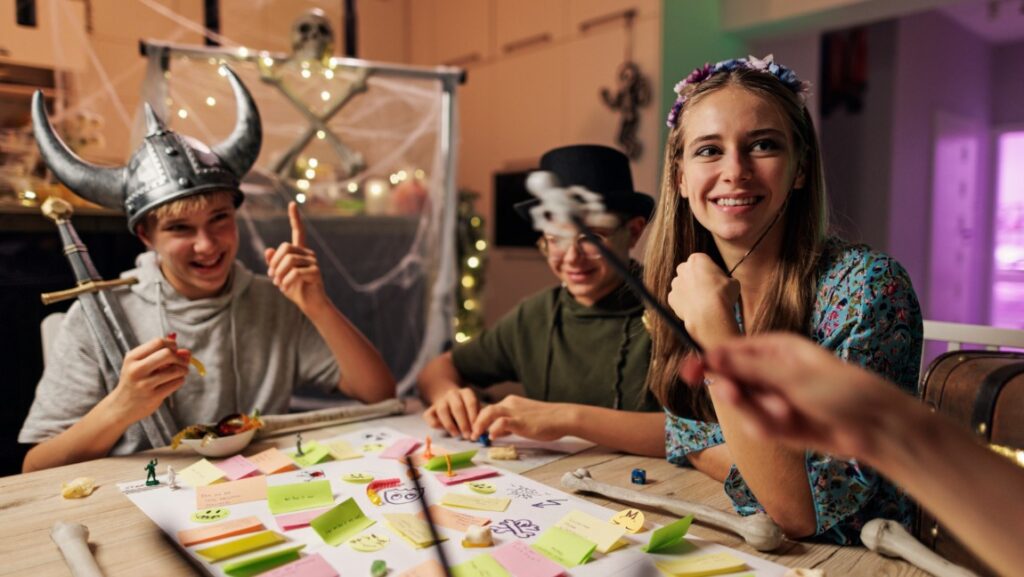
Is rebellion causing a rift in your relationships? You’re not alone. While the “rebellion stage” is often expected in teenagers, resistance can arise in anyone—young children, adults, even ourselves. To restore harmony, understanding the root causes of retaliation, rebellion, and resistance is essential.
During adolescence, the prefrontal cortex—the brain’s hub for judgment, emotional regulation, and decision-making—remains under development until the mid-20s. This affects a teen’s ability to process emotions and interpret social cues accurately, often mistaking neutral expressions for anger. Combined with fluctuating hormones, it’s no wonder teens sometimes slam doors or roll their eyes. But rebellion isn’t exclusive to teenagers; adults, too, can slip into reactive patterns when their emotions are triggered.
The Three R’s
Dr. Louise Porter, co-creator of the Guidance Approach to Parenting, notes that 75% of disruptive behaviors stem from the misuse of power, triggering what Dr. Thomas Gordon termed the Three R’s: Retaliation, Rebellion, and Resistance. These dynamics hold the key to navigating conflict and fostering mutual respect in any relationship.
What Are the Three R’s?
- Retaliation: Acting out as a way to push back against perceived injustices or misunderstandings. The inner dialogue says, “I’ll show you!”
- Rebellion: Prioritizing personal autonomy over responsibilities, often expressed through defiance or social withdrawal.
- Resistance: Refusing to cooperate, listen, or participate as a way to assert control.
These behaviors often stem from unmet needs for autonomy and acknowledgment. Regardless of age, everyone wants their perspective valued.

7 Practical Tips to Manage Teenage Rebellion (or rebellion in anyone)
The Conscious Parenting Revolution emphasizes the Guidance Approach to Parenting, which focuses on fostering connection, empathy, and collaborative problem-solving to address the Three R’s effectively. Here’s how to handle rebellion in a meaningful and lasting way:
- Disengage Temporarily:
When emotions are running high, the best course of action is often to step back. If your teen is upset or defensive, pressing the issue may escalate the situation. Instead, wait for a calmer moment to address the problem. This pause allows both you and your teen to process emotions and approach the conversation more constructively. - Set Collaborative Boundaries:
Teens thrive on independence but still need structure. Establish boundaries that respect their growing autonomy while ensuring safety and clarity. For instance, instead of imposing rigid rules, engage in collaborative discussions. You might say, “How about we agree on free time from 2-5 PM on Saturdays, as long as I know where you’ll be and who you’re with?” This approach invites their input and fosters mutual respect. - Find Common Ground:
Building a positive relationship with your teen often starts with shared activities. Whether it’s watching their favorite show, going for ice cream, or playing sports, these moments create opportunities for connection. When your teen feels comfortable, they’re more likely to open up about their thoughts and feelings, strengthening your bond. - Respond Thoughtfully:
Reacting impulsively to your teen’s behavior can shut down communication. When they confide in you—especially about sensitive issues like friendships or relationships—resist the urge to overreact. Instead, listen calmly and offer thoughtful guidance. This reassures them that they can share openly without fear of judgment or criticism. - Use Neutral Language:
The way you communicate matters. Avoid phrases like “You always” or “You never,” which can make your teen feel attacked. Instead, adopt a neutral tone. For example, say, “I’ve noticed you’ve been late to school recently. Is something going on?” This opens the door for discussion without creating defensiveness. - Respect Their Privacy:
Trust is a cornerstone of any strong relationship. Avoid invading your teen’s personal space by checking their phones, snooping in their room, or monitoring their social media. By respecting their privacy, you show that you trust them, encouraging them to be more forthcoming on their own terms. - Support Their Emotional Growth:
Adolescence is a time of significant emotional and physical change, and teens may struggle to understand what they’re experiencing. Be available to discuss these changes or provide access to trusted mentors, family members, or counselors if they’re more comfortable speaking with someone else. Providing guidance ensures they have the tools to navigate this critical stage.
Supporting Teens with Conscious Parenting
Navigating rebellion requires patience, empathy, and a willingness to understand the underlying causes of behavior. By incorporating these strategies, parents can foster healthier and more cooperative relationships with their teens. To explore these concepts further, check out Katherine’s TEDx talk, “The Rebellion is Here: We Created It and We Can Solve It”—a valuable resource for parents aiming to thrive during this pivotal stage.
Start your journey to stronger communication and connection today.
Love and Blessings,
Katherine Winter-Sellery



 The Ultimate Parenting Toolbox: Proven strategies for reducing stress and conflict.
The Ultimate Parenting Toolbox: Proven strategies for reducing stress and conflict. & Happy Hanukkah
& Happy Hanukkah 















